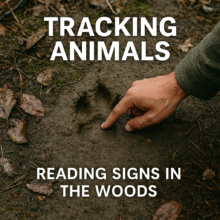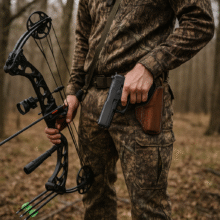State by State Hunting Rules and Regulations: A Comprehensive Guide

Hunting is a beloved outdoor activity among enthusiasts nationwide. Nonetheless, it’s crucial to note that hunting rules and regulations differ from state to state. In this comprehensive guide, we will offer valuable insights into the hunting rules and regulations in each state, ensuring you have the necessary information at your fingertips.Whether you’re a seasoned hunter or a beginner, this guide will help you navigate the specific requirements and restrictions of your desired hunting destination.
Table of Contents
Table Of Contents
Understanding Hunting Regulations
Why Hunting Regulations Are Important
Hunting regulations are implemented to ensure the sustainability and conservation of wildlife populations. Moreover, these regulations aim to maintain a balanced ecosystem and preserve natural habitats. By setting guidelines and restrictions, hunting regulations promote responsible hunting practices and protect endangered species. Additionally, they promote ethical hunting practices and maintain a safe environment for hunters and the public. It is essential to understand and adhere to these regulations to engage in responsible hunting.
The Role of State Agencies
In each state, there is a wildlife management agency that is responsible for establishing and enforcing hunting rules and regulations. These agencies collaborate closely with biologists, conservationists, and hunters to develop policies that align with the state’s specific ecological needs and hunting traditions.
Researching Hunting Regulations by State
Accessing State Wildlife Agency Websites
To obtain accurate and up-to-date information regarding hunting regulations in a particular state, it is recommended to visit the official website of the state’s wildlife agency. These websites offer comprehensive guides, hunting season dates, bag limits, licensing requirements, and specific regulations for various game species.
Key Hunting Regulations to Consider
When researching hunting regulations, pay attention to key factors such as bag limits, season dates, legal hunting methods, required permits and licenses, hunter education requirements, and any additional restrictions that may apply.
Hunting Rules and Regulations by State
Northeast Region
- Maine: Hunting Zones and Bag Limits
- New York: Licensing Requirements and Season Dates
- Pennsylvania: Safety Zones and Hunting Hours
Midwest Region
- Michigan: Game Management Units and Antler Point Restrictions
- Wisconsin: Blaze Orange Clothing Requirements and Crossbow Regulations
- Ohio: Special Hunting Seasons and Permit Lottery System
Southern Region
- Texas: Private Land Regulations and Hunting Lease Options
- Florida: Wildlife Management Areas and Alligator Hunting Permits
- Georgia: Hunter Education Requirements and Public Land Access
Western Region
- Colorado: Big Game Draw System and Preference Points
- Montana: Bear Hunting Quotas and Wilderness Area Restrictions
- Oregon: Nonresident Hunting Tags and Controlled Hunt Areas
Staying Informed and Compliance
Updates and Changes to Hunting Regulations
Hunting regulations can change from year to year, so it’s important to stay informed. Subscribe to state wildlife agency newsletters, follow social media accounts, and regularly check the official websites for any updates or changes to hunting regulations.
Compliance and Ethical Hunting
Responsible hunters not only follow hunting regulations but also practice ethical hunting principles. This includes not only fair chase but also proper shot placement, respect for landowners and other hunters, as well as ethical handling of harvested game.
Conclusion
Understanding the hunting rules and regulations specific to each state is vital for any hunter. By researching and adhering to these regulations, you can enjoy a safe and ethical hunting experience while contributing to wildlife conservation efforts. Remember to always stay updated, act responsibly, and respect the hunting traditions and natural resources of each state you visit.







